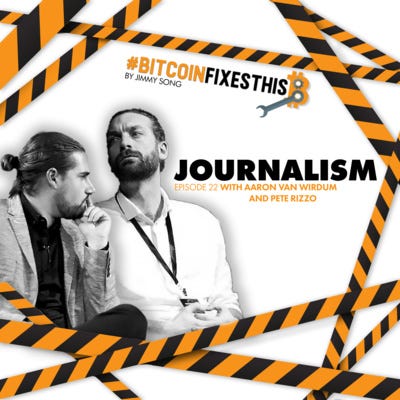It’s easy to see how as a society, as a civilization, we’re being bullied right now. The authorities can and do make us do things that we don’t want to do, but most of the populace go along with it without so much of a whimper. This is a learned trait, something that most people get from going to school for 12-20 years of their life, learning essentially to parrot back whatever the teacher says in exchange for a nice grade and eventually a paycheck.
That paycheck isn’t just important for the money it provides, but also for all the debt that it gives access to. Mortgages, credit cards and more are available to those with a steady paycheck and a good credit history.
Debt is both loved and hated. It’s loved for the consumption it can bring forward and hated for the obligations it puts on us in the future. Debt is the ultimate tool in the toolbox of high time preference tools. It lets us get what we want now and pay it off later. It discounts the future and limits our freedom, but we take the trade-off because… well, because it makes us happy now.
Strange, isn’t it? Why do we take on debt? Are we that spoiled and impatient that saving to buy something is a foreign concept? In a sense, debt is the corrupt shortcut to the long and arduous task of saving for something. Instead, the saving is pushed backward and the joy of obtaining the goal is brought forward. Debt corrupts good character. It makes us all spoiled brats.
We all intuitively know that shackling our future selves with debt is a terrible thing to do to ourselves, and though there’s a natural hatred of debt, most of us are drowning in it and act for all intents and purposes like we love debt. In other words, we’re caught in a monetary Stockholm Syndrome where we learn to love the very thing that enslaves us.
This is one of the subtle outcomes of central-bank backed debt-based fiat money and one of the things that Bitcoin cures. A Bitcoin standard puts savings in the right place, where we can really know the true cost of buying something instead of pushing off repayment to our future selves, we have to experience the difficulty of earning that money first. This naturally gives us a much greater respect for work and saving and develops our character instead of corrupting it.
In other words, Bitcoin fixes high time preference behavior caused by all the bullying.
Bitcoin
Slush has published an article on Taproot privacy. The article explains basic concepts like UTXOs and anonymity sets to complex ones like how Taproot’s new p2tr (pay-to-taproot) will increase anonymity eventually. The key, as usual, is adoption to increase the anonymity set. And that requires something of a network effect as the privacy gains increase with more adoption. We’ll see if this upgrade has a faster upgrade cycle than the segwit.
Nick Neumann wrote an article on the importance of UX to Bitcoin. The main argument made in the article is that we’ve sacrificed self-sovereignty for an easier user experience. This is a bad trade-off because it centralizes things too much. What the article makes clear to me is that people simply do not want the responsibility that comes with self-sovereignty as it’s not something we’re used to in a nanny-state world.
Ledger has a new tool for more privacy with their hardware wallets called SatStack. The tool essentially allows the Ledger software to connect to your own full node instead of Ledger’s servers, preserving a lot more privacy. Kudos to Ledger for finally giving us a tool for this, though with HWI, savvy users have been able to do this for a while using Bitcoin Core. That said, more choices and competition are good and I hope they cater more to Bitcoiners as ColdCard has by making security and privacy more of a priority than adding yet another altcoin.
Bitcoin Magazine has a nice summary of the 21 best Bitcoin projects of 2020. If I had to choose my top 3, I would say Specter for its making hardware multisig much more secure and accessible, Strike for making Lightning a lot more useful via USD on/off ramps and CashApp/River/Swan for making Dollar Cost Averaging more popular.
Lightning
BitMex research has released a Channel Jamming attack mitigation article. The article is useful for learning what Stake Certificates are and what the current problems are with regard to both privacy and a form of denial of service called channel jamming. Essentially, there’s a way to prove “stake” in a UTXO as a way to prevent DoS. Pretty in-the-weeds, but a good way to understand some of the intricacies of the trade-offs in Lightning.
Christian Decker is working on an interesting tool for reconstructing the topology of the Lightning network in the past using message logs. This will be useful to determine the reliability of different nodes and reconstructing past behavior when balancing channels and so on. This points to the fact that there’s a lot of data that will be able to be mined on the Lightning network, much more than in Bitcoin proper.
Economics, Engineering, Etc.
Saifedean Ammous has an excellent article about his next book, the Fiat Standard. Perhaps the most interesting part of the article is his insight that while fiat money is absolutely terrible for transferring value across time, it’s actually pretty good at transferring value across space. The book will continue where his previous book left off, showing how Bitcoin will continue in a fiat world.
Dan Held has written an article on Bitcoin’s monetary policy. The article points to the interesting concept that we finally have a fixed measuring stick for economics. This is something that we’ve never had before as all other money we’ve ever used has increased in supply. Thus, he calls Bitcoin’s monetary policy “perfect.” In that sense, I hope to see more exploration of how other economic goods and activity can be measured using Bitcoin. For example, what’s going on with the dollar as in the s2f model.
Dhruv Bansal has probably the most speculative article I’ve seen this year. This is a followup to a previous article about Bitcoin Astronomy, or what Bitcoin will look like in the remote future. All aspiring sci-fi writers would do well to read this article and consider the implications for more economically interesting scenarios.
Micro Strategies has already raised $650M in convertible notes. What’s crazy is that they raised this money in only a few days and at a 0.75% interest rate. This just goes to show the leverage big companies have in the economy and how they dwarf anything normal people can do, even collectively. They’ve already announced that they’re putting this money into Bitcoin, meaning that there’s going to be $650M flowing in very soon. If this succeeds, we may be in for a lot of speculative attacks against the dollar.
Another week, another public company buys Bitcoin.
Podcasts
My podcast this week was with Pete Rizzo and Aaron van Wirdum about journalism. We talked about their latest piece for Bitcoin Magazine, how reporting has failed and how it can be fixed. These two are the good guys and I really hope we get more of their style of reporting and not fluffy marketing pieces that litter the space today.
I was on Tone’s show to talk about speculative attacks, Venezuela, Congress and many other Bitcoin news items. I had another show with him about the election, but that video has since been taken down by YouTube.
My new book making the moral argument for Bitcoin from a Christian perspective is out! I’ve done a bunch of podcasts to promote the book and have some conversations about these topics, including Marty Bent’s podcast, Tales from the Crypto, Alex Svetski’s Wake Up and Max Keiser and Stacy Herbert’s Keiser Report. If you would like to buy the paperback edition in bulk (20+), please reply to this email and I can give you a discount provided you’re willing to wait a few weeks.
My other books are here. They were recommended as part of Sylvain Saurel’s post on the four Bitcoin books he recommends here.
Fiat delenda est.













Hello Jimmy, thank you for your work in democratizing Bitcoin, and thank you for this new book that I will be hurrying to order.